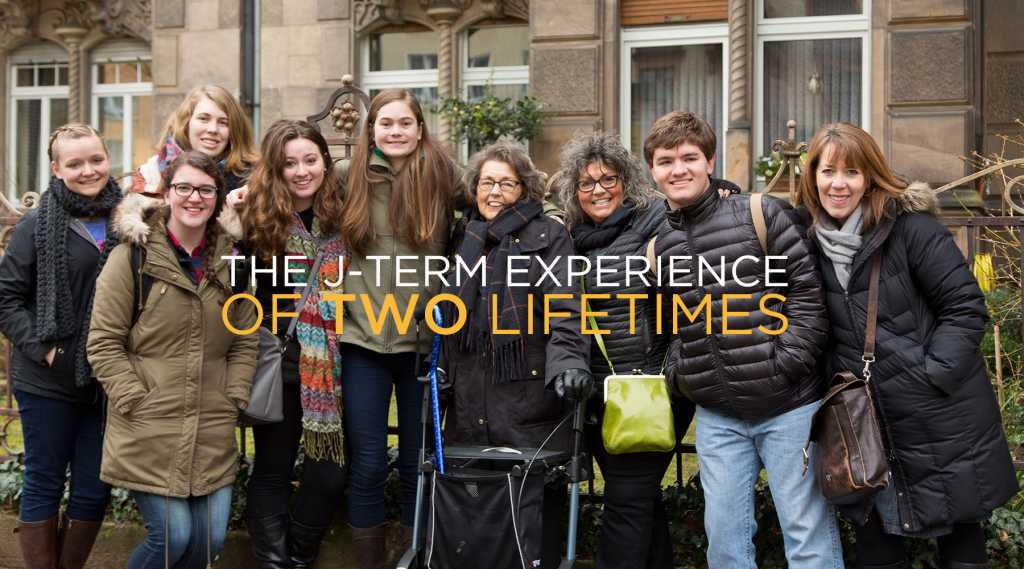Page 138 • (1,382 results in 0.153 seconds)
-
. Wallace is on the Synod’s Committee on Social Justice. Dr. Wallace holds a Bachelor’s Degree in Social Welfare from Adelphi University in New York, a Masters of Education in Human Development and Family Studies from the University of North Carolina in Greensboro, a Masters of Divinity from Lutheran Theological Southern Seminary in Columbia, South Carolina and holds a Ph.D. in Family Social Science with an emphasis in Marriage and Family Therapy from the University of Minnesota. Dr. Wallace has a long
-
Justice - RL, VW This course offers in-depth exploration of how religious communities and religious leaders are responding to anthropogenic climate change and how the study of religion and theology shed light on political and moral debates on the issue. Special attention is paid to Christian perspectives, but texts are included from other religious traditions and from multiple global, racial, and socio-economic contexts. Students will create a research-based final project developing and defending a
-
the level of advocacy our diverse community needs to manifest social justice. Matthew Orcilla ’17: Being the president of a club has provided me the opportunity to work with different people. It’s my most valuable experience at PLU. WHAT IS/WAS IT LIKE TO BE A FEMINIST ON CAMPUS? Andrew Harron ‘09: Feminist Student Union Kendra Saathoff ’17 Feminist Student Union What was/is the PLU climate? (Photo: From the 1979 Saga) 1979 Feminist Student Union: Susan Folsom, Kevin Gussiaas, Cindy Francis, Jan
-
Diversity Center Alumni Pacific Lutheran University’s Diversity Center community members past and present team up for a special podcast series. Angie Hambrick, PLU’s Assistant Vice President of Diversity, Justice and Sustainability, hosts the podcast as it explores important topics such as race in America, inclusion, systematic oppression and ally-ship. “When we say dCenter Alums, it encompasses a large spectrum of alums who’ve come through PLU,” Hambrick said. “Either folks who were part of the center
-
continuation of the philosophy that launched the Salishan program — a service-learning, community-based study away experience in PLU’s backyard that focuses on diversity, sustainability and justice. TIES offers PLU students the chance to live full-time in one of Tacoma’s most diverse neighborhoods for a semester. They take the bus, work internships with various community organizations, and learn about the humanities and how to apply them in practical ways. Zylstra says the program is beneficial to students
-
and care for this world and our commitment to strive for justice and peace wherever we find ourselves.Event RegistrationKeynote SpeakersHotel InformationPLU SpeakersScheduleWild Hope Center for Vocation Audience Meaning and purpose are integral to vocation. Similarly, the art and craft of meaning-making and purposeful education are foundational pursuits for faculty and staff working in colleges and universities. This is why this conference is designed to cover both the curricular and the co
-

Alumni News Class Notes Calendar Credits Contact Recent Posts Communities in Schools May 21, 2015 National Think Tank May 4, 2015 Special Edition: "... and justice for all?" April 30, 2015 Seattle Startup Success April 28, 2015 Archives > < Winter 2018 Fall 2017 Spring 2017 Winter 2017 Fall 2016 Spring 2016 Winter 2016 Fall 2015 Spring 2015 Winter 2015 Fall 2014 Spring 2014 © 2015 Pacific Lutheran University | All Rights Reserved Back to top
-

Alumni News Class Notes Calendar Credits Contact Recent Posts Communities in Schools May 21, 2015 National Think Tank May 4, 2015 Special Edition: "... and justice for all?" April 30, 2015 Seattle Startup Success April 28, 2015 Archives > < Winter 2018 Fall 2017 Spring 2017 Winter 2017 Fall 2016 Spring 2016 Winter 2016 Fall 2015 Spring 2015 Winter 2015 Fall 2014 Spring 2014 © 2015 Pacific Lutheran University | All Rights Reserved Back to top
-
state and national averages — is a direct result of Hewins’ stable leadership. He praised the superintendent’s focus on purposeful recruiting, thoughtful and rigorous professional development, social justice and equity, and more. “While a team effort certainly created the growth, Frank’s leadership set the vision and expectation for success,” Keim said. “That type of leadership is what the Superintendent of the Year award is designed to recognize.” Hewins has worked in Franklin Pierce Schools for
-
: Employment Applications, Student Positions, Not Hired May include resumes, applications, correspondences, references and other material from students applying for positions in the department. Official Copy: Hiring department Retention: 3 years after completion of hiring process Other Copies: Retention: Employment Eligibility Verification Forms (I-9) Staff Provides a record of employment eligibility for faculty and staff in compliance with U.S. Department of Justice Immigration and Naturalization Service
Do you have any feedback for us? If so, feel free to use our Feedback Form.


